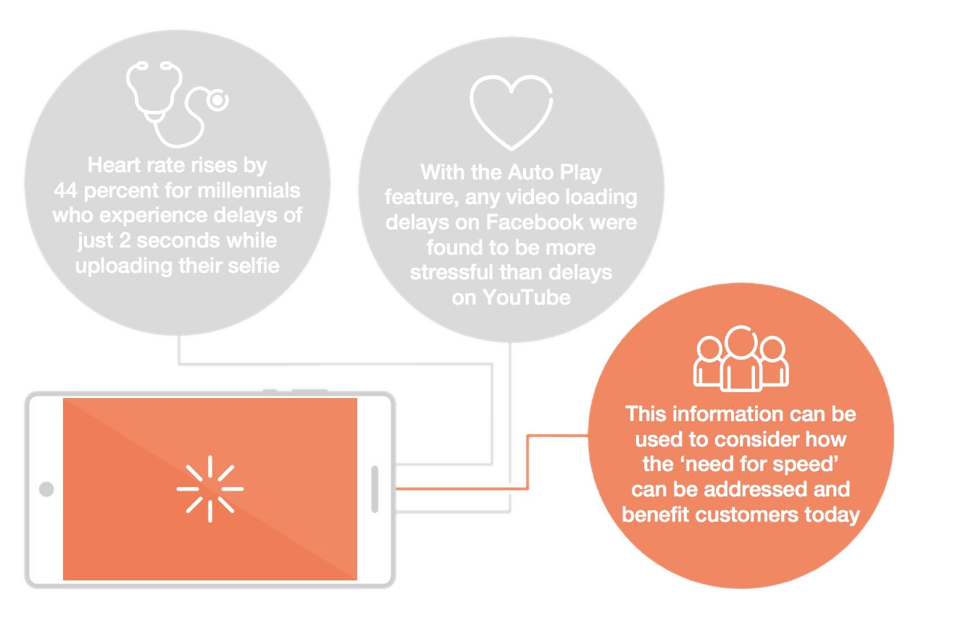
Use case: Vodafone — Streaming Horrors
Partnering with Vodafone and Ericsson, we uncovered the effect of streaming delays — turns out it's about the same as watching a horror movie!
In partnership with leading telecommunications companies, we conducted a series of groundbreaking studies to investigate how streaming delays affect user experience. Our research revealed that the impact of mobile delays on users is far more severe than previously understood.
In our initial Scandinavian study, we monitored participants using eye-tracking, EEG brain monitoring, and heart rate measurements while they experienced various levels of website loading delays. The findings were remarkable: after just 2-3 seconds of delay, users showed a 44% increase in heart rate, alongside significant spikes in cognitive load and decreased motivation. Intriguingly, while participants claimed they would tolerate up to 5 seconds of delay, their physiological responses showed stress reactions much earlier.
The impact on brand perception proved equally significant. When users experienced delays, they not only developed negative associations with the brand they believed responsible but also showed increased positive emotions toward competitor brands. This "double-whammy" effect demonstrated how technical performance issues could directly impact brand value.

Our follow-up study exploring cultural differences between German and Indonesian users revealed fascinating variations in delay tolerance. While German users showed stress responses after just 1 second of delay, Indonesian users remained tolerant up to 9 seconds. Despite these timing differences, the negative emotional responses remained consistent across cultures. The study also found that both service providers and content platforms suffered brand damage from poor performance.
Our most recent research focused on 5G delays in virtual reality gaming, comparing experiences between traditional PC and VR platforms. The study of 64 participants, including both professional and casual gamers, showed that VR gaming with delays created more than twice the stress levels of delayed PC gaming. Players experienced significant performance issues, with some reporting nausea that forced them to stop playing entirely. Memory retention also suffered, with delayed VR experiences showing a marked negative impact on players' ability to recall information.
These findings collectively demonstrate that mobile delays are not merely an inconvenience but a significant factor in user experience, brand perception, and cognitive performance. As digital experiences become increasingly immersive, the importance of minimizing delays becomes even more critical for maintaining positive user engagement and brand relationships.